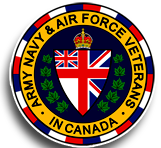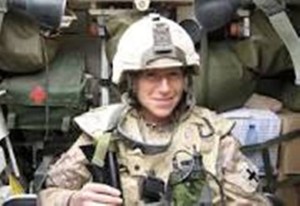Updated May 10th.
BY MICHAEL DEN TANDT, POSTMEDIA NEWS MAY 8, 2014
A Day of Honour on Friday will pay tribute to the 40,000 Canadian soldiers who served in Afghanistan between 2002 and 2014.
Photograph by: JASON KRYK/Postmedia News , Postmedia News
We can debate whether the staging of a Day of Honour for Canadian Afghan war veterans was politically motivated; whether the Harper Conservative government is truly dedicated to the “men and women in uniform,” as the talking point goes, or whether that’s just convenient window dressing; and whether such a commemoration would have been better held on Nov. 11, Remembrance Day, when Canadians who served in earlier wars are remembered.
What is not up for debate, though, is whether the 40,000 Canadian soldiers who served in Afghanistan between 2002 and 2014 deserve the honour. They do, of course. That should be the focus Friday — and let the politics, mercifully, fall away, if only for a day.
I will never forget how I felt early one morning in late January 2006, standing in a dingy, concrete-walled room in a corner of the compound at Camp Nathan Smith, preparing for the first time to go out on patrol with Canadian soldiers in Kandahar. I was physically terrified — guts knotted and cramped, knees wobbly. As I listened to the young sergeant run through his threat list, which included suicide bombers roaming the dark streets in search of coalition soldiers to kill, I felt a strange sense of unreality. Why on earth were we going out there, if it was so dangerous?
In mid-reverie, I heard my name spoken. I realized the sergeant had asked me a question: “What’s your job, if we get hit?” I had no clue. I glanced briefly at the troopers in the small room, most 10 years or more younger than me. They stared back impassively. This was early in the expanded mission in Kandahar. Canadian soldiers were still patrolling in armoured Mercedes G-Wagons, a type of SUV. That meant a reporter took a soldier’s seat. That in turn meant one less rifle, one fewer set of trained eyes watching the road for a roving motorcycle bomber, or an explosives-packed jingle truck, or a Toyota Corolla loaded with old Soviet artillery shells.
At a loss, I mumbled that I’d try to keep out of the way. The sergeant, whose name was Chris Thombs, smiled, not unkindly. “That’s not bad, but we’d actually want you to start giving first aid,” he said.
I had never felt less prepared, or more grateful to be surrounded by professionals who were. Repeatedly during the month I was about to spend in Kandahar, and during my second trip there the following fall, I was amazed by the uniformly superb quality of the people Canada had fielded in Afghanistan. I saw and heard virtually no swaggering or bluster; no voicing of hostility towards anyone, or fear either — but rather, habitual quiet competence, and a resolve to get the job done.
Early on, if I heard a complaint from ordinary soldiers, it was that they felt too many Canadians back home didn’t understand the nature of the war. Peacekeeping, for every trooper I spoke with about this, without exception, was an outdated concept, invalidated years before in Rwanda, and one they felt could not even be fairly used to describe their Bosnian deployments in the late 1990s, let alone the Afghan conflict. They were warriors, and wanted to be recognized as such.
Warriors? Aha! Therefore it really was a “shooting war,” a “combat mission,” and not a humanitarian mission? Well, no. It was both, at the same time, from beginning to end. And this is the disservice done to Canadians soldiers by politicians, and often by journalists too, who played into the notion that unless soldiers were blue-helmeted conciliators, who happened to carry weapons out of habit, they had to be hard-bitten killers out of a Hollywood movie. Both stereotypes were and are ridiculous.
The reality, evidence of which I have seen repeatedly, is that Canadian military culture institutionalizes a blend of toughness and compassion, and may even be somewhat unique in this respect. Afghan officials told me numerous times why they enjoyed working with Canadian soldiers. It was because they were better at listening, building and helping than the American military, which typically excelled at breaking, not making; and better in a fight than, say, the Dutch or the French militaries, whose commanders were loath to risk casualties. Were there failures, oversights and calamities? Absolutely, there were. But in the end these 40,000 Canadians came home with the reputation I have just described, more than any other.
This story, of quiet heroes who placed their courage, training and strength, their lives, at the service of protecting the vulnerable, was told during the war, of course — but never often enough. After the controversy, after the political football-tossing, it is the single story that endures, for the vast majority of those who served. It is why they went. If that’s not honour, there is none.



